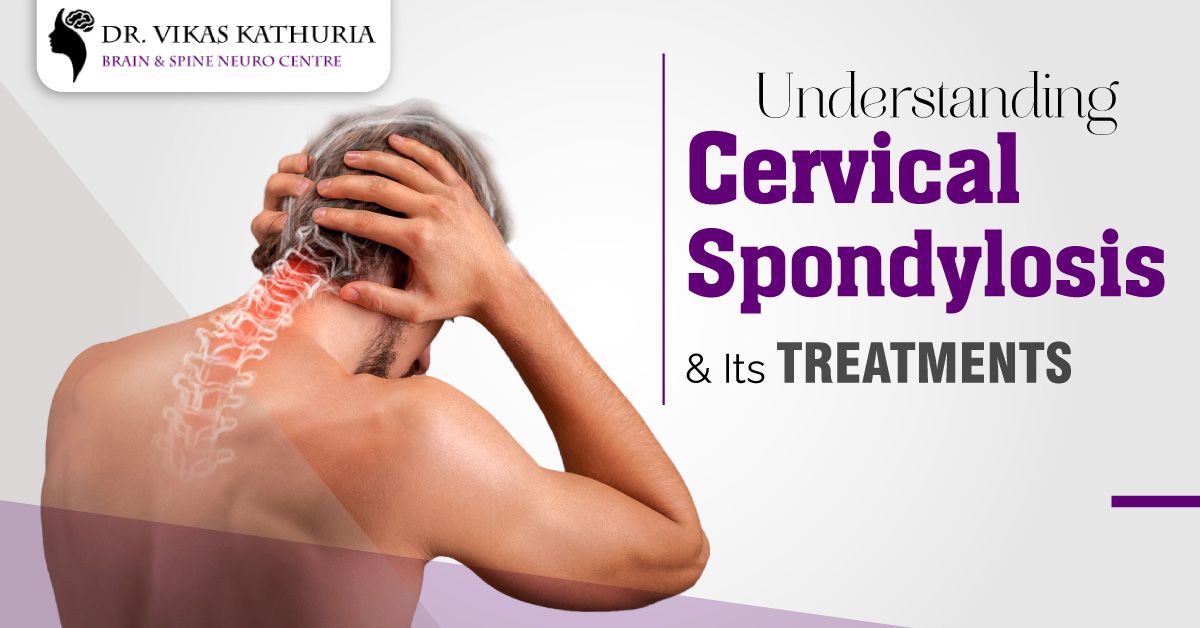Understanding Cervical Spondylosis & Its Treatments

Cervical spondylosis is a common age-related condition that affects the cervical spine or the neck. It is characterized by the gradual degeneration of the cervical discs, which are the cushions that separate the vertebrae in the neck. The condition can cause pain, stiffness, and reduced mobility in the neck, as well as numbness and weakness in the arms and hands.
Causes and Symptoms of Cervical Spondylosis
Cervical spondylosis is a degenerative condition resulting from wear and tear on the cervical spine. The condition is more common in older adults. Still, it can also affect younger people who have a history of neck injury or engage in activities that strain the neck, such as heavy lifting or contact sports.
The symptoms of cervical spondylosis can vary depending on the severity of the condition. Common symptoms include:
- Neck pain and stiffness.
- Headaches.
- A grinding sensation in the neck when moving.
- Numbness or weakness in the arms and hands.
In severe cases, the condition can cause difficulty walking, bladder or bowel control loss, and even paralysis.
Treatments for Cervical Spondylosis
Cervical spondylosis is a treatable condition, and several options are available for managing the symptoms and preventing further degeneration of the cervical spine. Some of the common treatments for cervical spondylosis include:
Medications: Non-steroidal anti-inflammatory drugs (NSAIDs) can help to relieve pain and reduce inflammation in the neck. Muscle relaxants may also be prescribed to ease muscle spasms.
Physical therapy: A physical therapist can design a program of exercises and stretches to help improve the range of motion in the neck and strengthen the muscles that support the cervical spine.
Rest and immobilization: In some cases, resting the neck and immobilizing it with a collar or brace can help to relieve pain and promote healing.
Injections: Corticosteroid injections can be administered directly into the affected area to reduce inflammation and relieve pain.
Surgery: Surgery may be recommended in severe cases of cervical spondylosis, where other treatments have failed to provide relief. Surgery aims to relieve pressure on the spinal cord or nerves and stabilize the cervical spine.
Cervical Spondylosis Treatment in Gurgaon
Gurgaon is a major healthcare hub in India, with several hospitals and clinics offering advanced cervical spondylosis treatments. Patients can find various treatment options for cervical spondylosis in Gurgaon, from medication and physical therapy to injections and surgery.
One of the key considerations when seeking cervical spondylosis treatment in Gurgaon from Dr. Vikas Kathuria is to find the best neurosurgeon in Gurgaon. A neurosurgeon is a specialist trained in diagnosing and treating conditions that affect the nervous system, including the cervical spine.
Dr. Vikas Kathuria who is the best neurosurgeon in Gurgaon has the experience and expertise in treating the condition and will be able to provide a personalized treatment plan based on the patient’s specific needs. They will also use the latest technologies and techniques to ensure the best possible outcomes for the patient.
Cervical spondylosis is a common condition that can cause pain, stiffness, and reduced mobility in the neck. While the condition is more common in older adults, it can also affect younger people with a history of neck injury or strain. Fortunately, several effective treatments for cervical spondylosis are available, including medication, physical therapy, injections, and surgery. 
